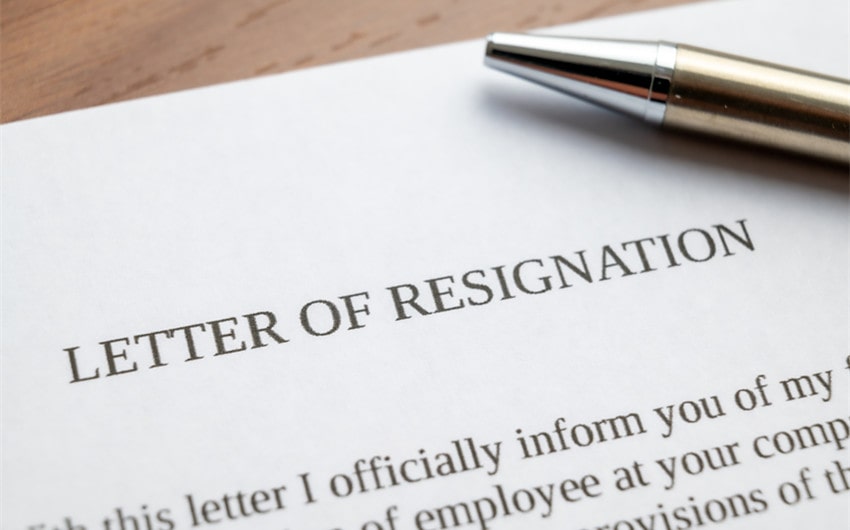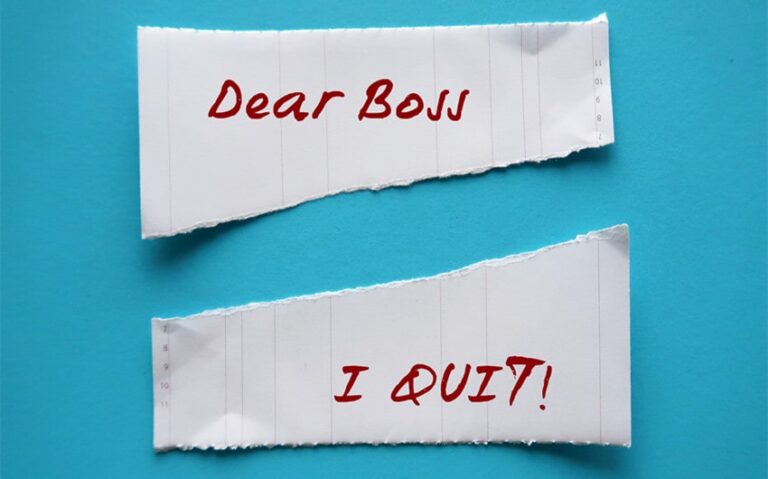How to Write a Personal Reason Resignation Letter: A Step-by-Step Guide
Resigning from your job can be emotional, awkward, or even stressful—especially when the reason is personal and you’d rather not share the details. Whether you’re dealing with a family crisis, health matter, mental health challenge, relocation, or something else that you simply want to keep private, knowing how to write a personal reason resignation letter is essential.
You may feel torn between being honest and oversharing. You may worry about whether your reason is “valid” or what your employer will think. But here’s the truth: you don’t need to explain everything. Personal reasons are valid, and you have every right to resign from a role when it no longer serves your life, well-being, or priorities.
In this guide, you’ll learn exactly how to write a personal reason resignation letter that’s professional, respectful, and clear—without going into uncomfortable or unnecessary detail. We’ll also cover what to include, what to avoid, how to set the right tone, and provide a real example you can adapt to your situation.
1. What Is a Personal Reason Resignation Letter?
A personal reason resignation letter is a formal notice you give to your employer when you’ve decided to leave your job due to reasons that are private or unrelated to the job itself. Unlike a resignation letter that’s focused on a new opportunity or retirement, this type of letter keeps the explanation minimal, often using the simple phrase “for personal reasons.”
This approach allows you to maintain your privacy while still giving your employer a clear and professional notice of departure. It’s common for people to use personal reason resignation letters when they need to leave quietly, quickly, or delicately. It also protects your professional reputation by staying neutral and focused on gratitude and clarity rather than the specifics of your departure.
Here are some situations when a personal reason resignation letter might be appropriate:
-
A health issue that you’re not ready to disclose
-
A need to care for a loved one
-
Mental health concerns or burnout
-
A move or relocation
-
Family changes such as divorce or custody responsibilities
-
A personal realization that it’s time to change directions
In all these cases, your reason is valid—and you don’t need to elaborate. A well-written letter helps ensure that you leave on good terms, with your dignity and professional relationships intact.
2. What to Include in the Letter
Even though your letter is focused on privacy, it still needs to follow a professional structure. A personal reason resignation letter should be clear, concise, and courteous. Here’s what you should include:
A clear statement of resignation
Start your letter by stating your intention to resign. You don’t need to soften this with long explanations—keep it simple and direct. For example:
“I am writing to formally resign from my position as [Job Title] at [Company Name], effective [Last Working Day].”
This sentence clearly communicates your decision and the timeline, which is the most important part for your employer to plan the transition.
Mention of personal reasons
You can briefly acknowledge the cause of your resignation without going into detail. A single phrase is all that’s needed. Here are a few examples:
-
“This decision is due to personal reasons.”
-
“After much consideration, I’ve decided to step down for personal reasons that require my full attention.”
-
“Due to private matters, I will be unable to continue in my current role.”
You do not need to justify your choice or describe the specifics. Keep the tone neutral and non-defensive.
Your last day of work
State the exact date that will be your final working day. Ideally, you should give at least two weeks’ notice unless circumstances make it impossible. Clarity here helps your employer manage staffing and project timelines.
For example:
“My last working day will be [Date], which allows for a two-week notice period.”
If you’re leaving immediately or with short notice, acknowledge that too, and express understanding:
“Unfortunately, due to the nature of my personal situation, I’m unable to provide more than a [X-day] notice.”
A note of appreciation
Even if you’re eager to leave, it’s a good idea to include a sincere thank-you. Expressing gratitude doesn’t mean you’re hiding problems—it shows emotional maturity and professionalism.
Examples:
-
“I’m truly grateful for the opportunities to grow and learn during my time here.”
-
“Thank you for your support and for the chance to work with such a dedicated team.”
-
“I’ve enjoyed being a part of [Company] and will carry valuable experiences with me.”
This simple gesture helps preserve a positive impression, which can benefit you later—especially if you need a reference.
An offer to assist with the transition (optional)
If you’re able and willing, you can offer to help during your remaining time. This could include training your replacement, wrapping up key projects, or documenting processes. It shows goodwill and can help maintain professional rapport.
Examples:
-
“I’m happy to assist in the transition over the next two weeks to ensure a smooth handover.”
-
“Please let me know how I can help during this period to minimize disruption.”
Of course, if your situation is urgent or you’re not in a place to offer help, this section can be omitted entirely.
3. What Not to Include
While you want to be polite and honest, it’s just as important to know what to leave out. A resignation letter for personal reasons should be clean and focused—no need to air grievances or provide sensitive information.
Here’s what to avoid:
Personal details
Don’t feel pressured to disclose the nature of your personal situation. Even if your manager asks, you have a right to privacy. If it’s relevant for HR documentation (e.g., medical leave), that can be handled separately in a confidential conversation.
Avoid statements like:
-
“I’m dealing with a chronic illness that’s making work impossible.”
-
“My marriage is falling apart and I need time to deal with it.”
-
“I’m having mental health issues I’m too embarrassed to explain.”
You can be respectful without being revealing.
Negative feedback or complaints
Even if you’re leaving due to burnout, poor management, or a toxic environment, your resignation letter isn’t the place to voice these concerns. Save that for a respectful exit interview if you choose to provide feedback.
Avoid saying:
-
“This job has been a nightmare and I can’t do it anymore.”
-
“Management has made this role unbearable.”
-
“There was no support from my team.”
Instead, keep your message neutral and professional.
Apologies or justifications
You don’t need to apologize for prioritizing your well-being, family, or personal circumstances. A short explanation is enough. You also don’t need to over-justify your decision. It’s okay to leave.
Avoid lines like:
-
“I hate to let the team down, but…”
-
“I’m sorry for making this difficult for you.”
-
“Please forgive me for this sudden decision.”
A calm, confident tone goes further than guilt or over-explaining.
4. Sample Personal Reason Resignation Letter
Here’s a simple and professional resignation letter you can use as a template:
Subject: Resignation – [Your Name]
Dear [Manager’s Name],
I am writing to formally resign from my position as [Job Title] at [Company Name], effective [Last Working Day].
This decision comes after careful consideration and is due to personal reasons that require my full attention at this time. I am grateful for the opportunities I’ve had during my tenure, and I deeply appreciate the support, mentorship, and collaboration I’ve experienced while working here.
Over the next [two weeks], I’m happy to assist in ensuring a smooth transition. Please let me know how I can help with training or handing off current projects.
Thank you again for the opportunity to be part of [Company Name]. I’ve learned a great deal and will carry these experiences forward in my career.
Sincerely,
[Your Full Name]
Variations:
For short notice:
“Due to the nature of my personal situation, I am unable to provide a full notice period. My last working day will be [Date]. I hope for your understanding and will assist as much as possible in the coming days.”
For remote workers:
Include mention of remote coordination: “Though I work remotely, I am happy to ensure that my documentation and any outstanding responsibilities are passed on appropriately before my departure.”
For senior roles:
You may wish to acknowledge broader impact: “I recognize this transition may affect team operations, and I am available to assist in knowledge transfer or candidate review if needed.”
5. Tone and Format Tips
Writing a resignation letter—especially for personal reasons—can feel delicate. You want to be polite, respectful, and clear without sounding overly emotional or robotic. Here are some best practices for tone and formatting:
Use a calm, confident tone
Even if you’re leaving under emotional circumstances, keep your language steady and neutral. Avoid dramatic language or anything that sounds overly apologetic. You want to leave on good terms—and that starts with professional communication.
Keep it short and simple
Your letter doesn’t need to be more than 4–6 short paragraphs. Avoid long personal narratives. The clearer and more concise, the better.
Use standard business format
-
Start with the date and address it to your manager.
-
Use a subject line if emailing.
-
Use professional fonts (e.g., Arial, Times New Roman) and standard spacing.
-
Sign with your full name at the bottom.
Choose the right delivery method
If your company culture is formal, deliver a printed and signed letter. In modern workplaces, an email is often acceptable—but make sure it’s sent from your professional address and follows the same respectful tone.
Before sending, consider telling your manager in person or via a scheduled video call, if appropriate. A verbal notice paired with the written letter makes your resignation more considerate and professional.



